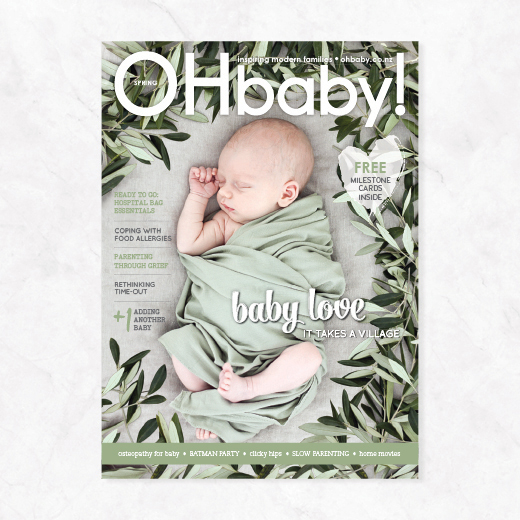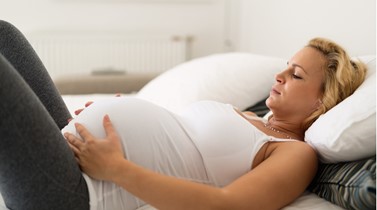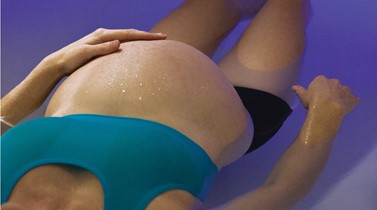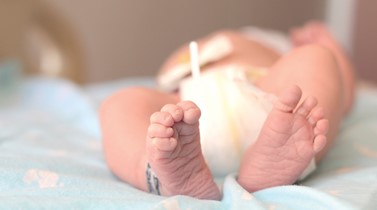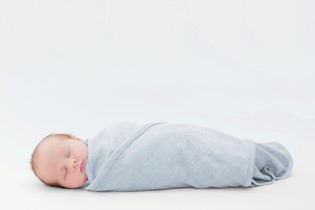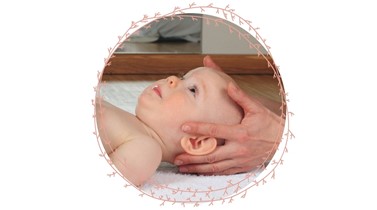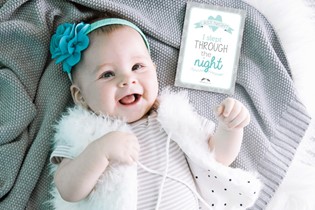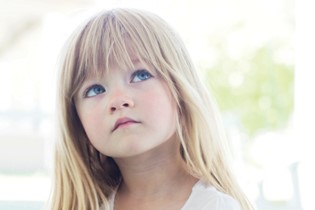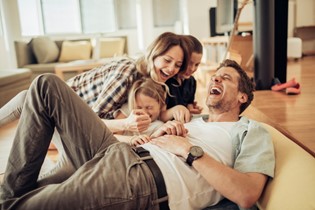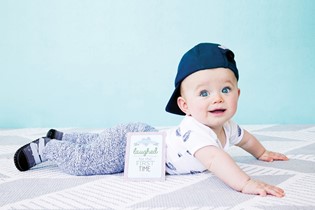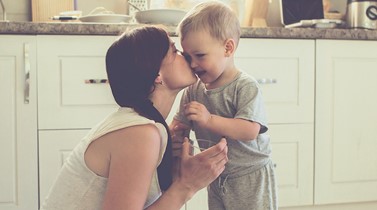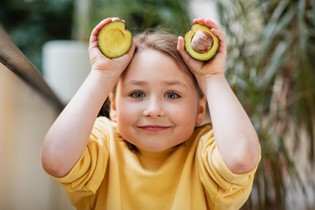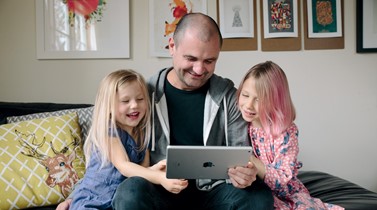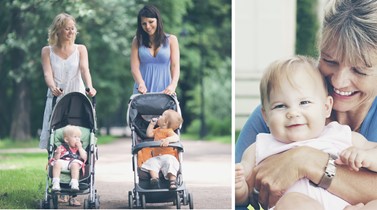No rush: how slow parenting creates family harmony
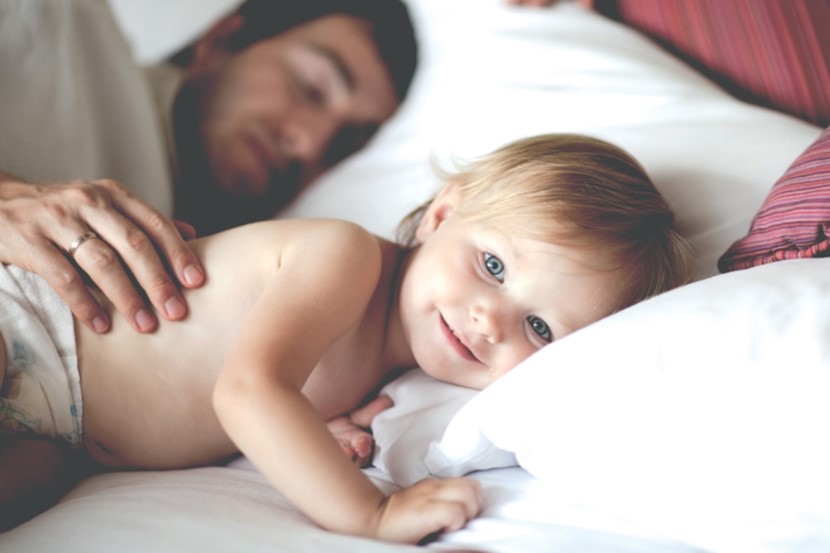
When busy is the new normal and rushing is a way of life, what does this do to our children? Sarah Tennant examines the art of slowing down.
I may not be a great parent, but I am lazy. Last year that would have been a confession. This year, it's a boast, as I've just learned about Slow Parenting.
One of life's most profound joys is finding out you were doing something right by accident. Learning that the way you've been innocently stumbling through life is actually a philosophy, with research and erudite articles to back it up. “Aha!”, you can say, “I wasn't too lazy to puree baby food, after all; I was practising baby-led weaning”. Or “I didn't forget to teach my five-year-old the months of the year; we were doing delayed academics”.
That's how I felt when I discovered Slow Parenting. See, I'm not exactly a go-getter. I do not thrive on bustle. If I'm going to gather three children into the car and leave the house, there had better be an enticement at the other end of the journey on a par with Disneyland.
As such, my children's lives are ... sedate. Preschool music class? I loathed it and we stopped going. Gymnastics? Too loud and chaotic, and we stopped going. Violin? It was on a Saturday morning, of all hellish times, and we stopped going. Playcentre? Parents were expected to attend meetings. We stopped going.
The relief of reclaiming a quiet life, however, was always accompanied by a twinge of guilt. Shouldn't I be enriching their lives more? What if Rowan had been heading for fame as a concert violinist, and I scotched her chances? Has Miles already passed that age at which he could soak up Latin and French without even noticing?
So you can imagine my delight when I found an entire movement was based around purging extracurricular activities from young children's lives. What's more, when I read up on it, it made good sense.
Changing speed
Slow Parenting is only one of many 'slow' movements. The most famous is 'Slow Food' which celebrates home-grown veges, hand-kneaded bread and leisurely family dinners. There's also 'Slow Fashion', which protests ultra-trendy sweatshop-made clothes; 'Slow Education', which objects to teaching to standardised tests; and 'Slow Cinema', which … sounds really boring, actually.
The common thread isn't speed per se, but mindfulness and deliberate simplicity. Many 'slow' adherents yearn for simpler times.
In the case of Slow Parenting, there's a harking back to the parenting of a few generations ago. You know the kind – “Kids, go play in the yard and don't come inside until you hear the dinner-bell!”. The kind with bikes instead of Wiis, siblings instead of play dates, and mothers who'd have choked on their cigarettes at the thought they were meant to entertain their progeny.
As such, Slow Parenting isn't an innovation: simply a rediscovery. It's a reaction to the kind of hot-housing that Amy Chua controversially boasted of in Battle Hymn of the Tiger Mother. It's a recognition that over-scheduling kids is starting earlier and earlier, and is not only bad for the children but for the rest of the family as well.
A vintage trend
Perhaps it's a bit naff to slap a label on a kind of parenting which for most of history was just normality. But then, for most of history parents weren't being warned to enrol their kids in the best preschools at birth lest they miss out. Nor did they put Baby Mozart headphones on their pregnant bellies. In a crazy world, perhaps normality is noteworthy enough for a label.
The celebrity of the movement is Carl Honoré, who's penned a series of bestsellers: Under Pressure, In Praise of Slow, The Power of Slow and The Slow Fix. Honoré admits he was a 'hyper-parent' for the first several years of his children's lives; aggressively enriching every experience, cultivating every slight talent and worrying that they might fall behind in the race to successful adulthood.
His epiphany came when he seized triumphantly on a teacher's comment that his six-year-old son was 'gifted' at drawing. The next day, Honoré informed his son that he'd found an art tutor to coax this precious, world-changing talent into greatness. The response? “Daddy, I don't want a tutor, I just want to draw. Why do grown-ups have to take over everything?”
I get Honoré's impulse. From the time our kids are babies, we're quick to note every physical and behavioural attribute and relate it to their adult selves. “Look at those long fingers! Do you think he'll play the piano?” “She loves that music! I bet she'll be a dancer.”
Nothing wrong with that, but it can tempt us to worry that we're wasting our child's potential if we don't thoroughly explore every gift they may possess. The result can be pushing a child into more and more activities – this because she's good at it, this to be well-rounded, this because he might be socially backward.
Honoré puts the case rather more strongly, calling modern parenthood “a cross between a competitive sport and product development”.
The cause? According to Honoré, the last few decades have brought a perfect storm of stressors to parents. An unpredictable economy increased our determination that our kids would get good jobs. Parents having later and fewer children meant we were extra-determined to shower said children with all the resources and opportunities we could muster. And a consumer culture primed us to expect perfect children, skilled at everything from cutting-out to swimming.
I think he may be overstating the crisis a tad, at least here in New Zealand. Don't parents flock here from hyper-achieving Asian countries to give their kids a more relaxed, child-friendly pace of life? Surely we're good at letting kids be kids.
Perhaps, but it is still remarkably easy for the rot to creep in. Weekly meet-ups with your old antenatal class, even though you've all grown apart and barely like each other any more after seeing each other's parenting choices. 'Play' dates between eight-month-olds who are barely aware the other baby exists. Kindy for a child who loathes kindy, because his grandmother keeps making worried comments about how he'll be behind at school if he doesn't go.
Clearing the calendar
Polling my friends, I discovered that the issue of over-scheduling is on everyone's mind. While none of them were familiar with Slow Parenting per se, they'd made deliberate choices to cut down on the clutter in their kids' lives, and their own. For Jess Bosgra, who juggles five kids under nine, that meant being firm with teachers. When a kindergarten insisted that she send her daughter for four full days per week instead of two half-days, Jess switched kindergartens. Later, she decided that her children would be doing minimal homework from now on: the time it took from downtime and play just wasn't worth it. Her kids now regularly deliver notes to the teacher saying “We prioritised family harmony over homework last night”.
My sister-in-law, Rosemary, chose a Montessori school with a pre-school on site, simplifying the school run. Another mum, Anna, chose a school close by and ensures all extracurricular activities are no more than five minutes' drive away.
Other friends decided to cut out school and kindy altogether! My home-schooling friends often mention that a slower pace of life is one reason they chose to go that route.
As a home-schooler myself, I heartily agree. We're not morning people – at 8.30 in the morning we'd much rather be piled up in bed kissing the baby than heading out the door with a packed morning tea and matching socks.
Though home-schooling doesn't necessarily protect you from an influx of extracurricular activities. Renee Termaat notes that she has to keep two days a week as 'home days' with nothing on the calendar, or life starts to fall apart – laundry, cooking, tempers.
“I like that we get their best times – not the dregs after they're knackered from all their activities/entertainment” says Renee. “I was ridiculously busy in 6th form, out every night, activities/classes/events – hardly at home. Dad said I treated home like a railway station, but I don't remember being challenged to give something up. I don't want that for my kids now or later. I know life will get busier – but we can savour the quiet and build relationships well now while we've got the time.”
And of course, that's the other half of the Slow Parenting coin – not just what you don't do with your children, but what you do with them. Slow Parenting doesn't advocate abandoning your kids to stare at blank walls throughout their childhood; it merely replaces frenetic, halfway-across-town, $150-a-term enrichment with enrichment of a more relational and organic nature. Reading books together. Taking a walk to the park that might not get there because your toddler spent ten minutes watching a cat in a driveway, and being okay with it. Blowing bubbles. Drawing. Kissing the baby. (Yes, I said that earlier. We have a really cute baby.)
Entertain me
If that all sounds hopelessly idyllic, well, of course it's not always that pretty. Kids who aren't entertained 24/7 do get bored.
They do fight. They do flock around your knees demanding to be provided with a multimedia extravaganza that will titillate their jaded senses.
But parents who have embraced slowness notice that after an adjustment period (“What do you mean 'go find something to do'?”), things do improve. I noticed it myself when pregnant with my second and third babies. I have the kind of pregnancies that make hot-housing my children physically impossible: my usual parenting style of benign neglect gets turned up to 11. (Before you call CYFS, I do have backup: my husband works from home.)
To my surprise and relief, my older children flourished by leaps and bounds during these months of 'neglect'. During Pregnancy #2 my daughter started working on beautiful, intricate drawings for long periods of time. During Pregnancy #3 she started playing teacher with her little brother. (And somehow he knows everything she did at his age, despite the fact that I taught her painstakingly on worksheets and he just scavenged knowledge behind my back like an alphabetically-gifted hyena. Why did I even bother?)
Maybe the slow, serene childhood I'm giving my kids will prove to be the perfect environment to germinate genius and creativity, turning them into C.S. Lewises and Jane Austens. Maybe not. Maybe that's not the point. Maybe the point is that, for now, they're children.
Sarah Tennant lives in Te Awamutu with her husband and three children. She would describe herself as a Slow Parent, except for the fear that others might agree.

AS FEATURED IN ISSUE 35 OF OHbaby! MAGAZINE. CHECK OUT OTHER ARTICLES IN THIS ISSUE BELOW
